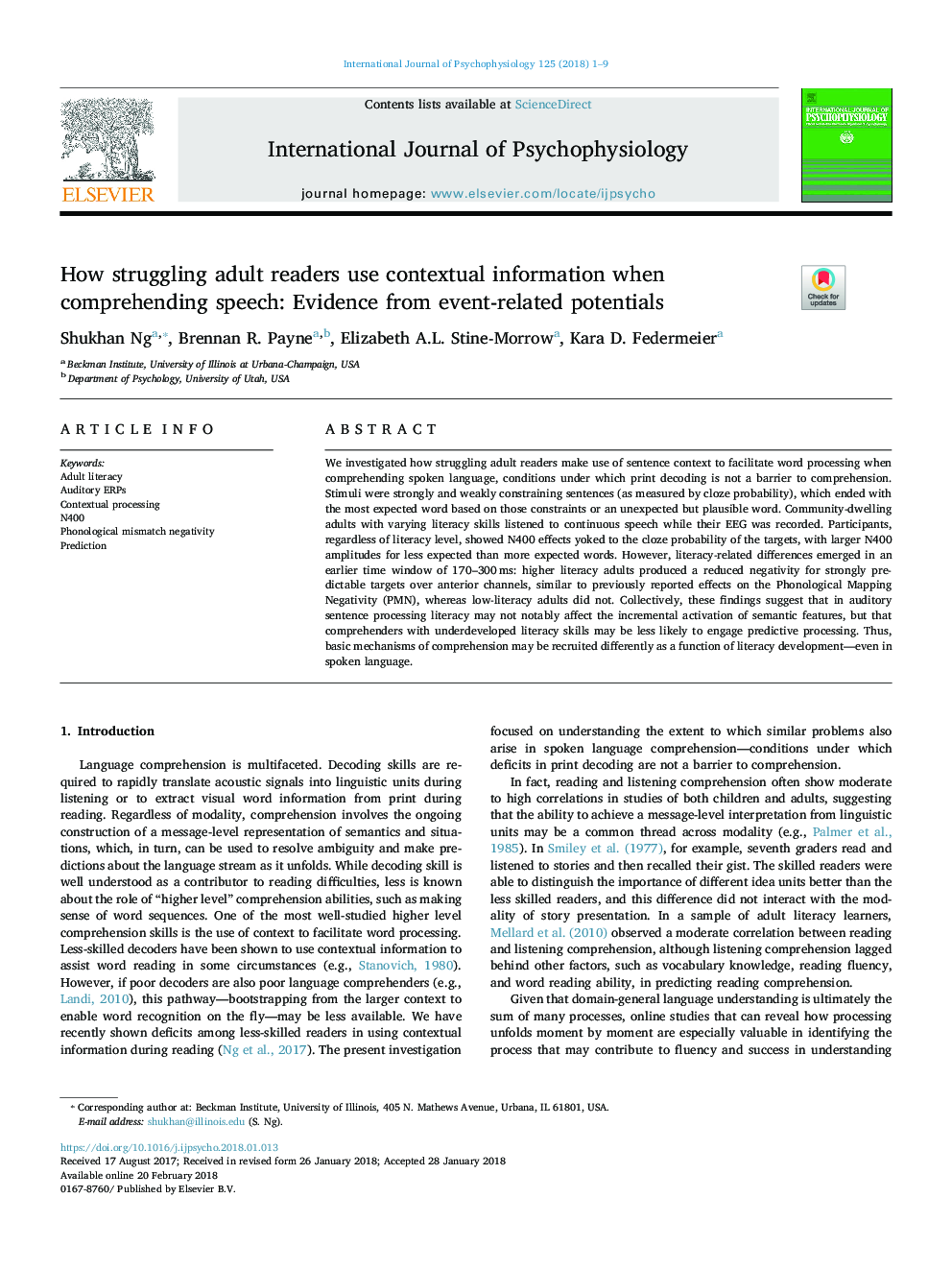| کد مقاله | کد نشریه | سال انتشار | مقاله انگلیسی | نسخه تمام متن |
|---|---|---|---|---|
| 7294865 | 1474371 | 2018 | 9 صفحه PDF | دانلود رایگان |
عنوان انگلیسی مقاله ISI
How struggling adult readers use contextual information when comprehending speech: Evidence from event-related potentials
ترجمه فارسی عنوان
چگونه خوانندگان بالغ مبارزه با درک گفتار از اطلاعات متنی استفاده می کنند: شواهدی از پتانسیل مربوط به رویداد
دانلود مقاله + سفارش ترجمه
دانلود مقاله ISI انگلیسی
رایگان برای ایرانیان
کلمات کلیدی
موضوعات مرتبط
علوم زیستی و بیوفناوری
علم عصب شناسی
علوم اعصاب رفتاری
چکیده انگلیسی
We investigated how struggling adult readers make use of sentence context to facilitate word processing when comprehending spoken language, conditions under which print decoding is not a barrier to comprehension. Stimuli were strongly and weakly constraining sentences (as measured by cloze probability), which ended with the most expected word based on those constraints or an unexpected but plausible word. Community-dwelling adults with varying literacy skills listened to continuous speech while their EEG was recorded. Participants, regardless of literacy level, showed N400 effects yoked to the cloze probability of the targets, with larger N400 amplitudes for less expected than more expected words. However, literacy-related differences emerged in an earlier time window of 170-300â¯ms: higher literacy adults produced a reduced negativity for strongly predictable targets over anterior channels, similar to previously reported effects on the Phonological Mapping Negativity (PMN), whereas low-literacy adults did not. Collectively, these findings suggest that in auditory sentence processing literacy may not notably affect the incremental activation of semantic features, but that comprehenders with underdeveloped literacy skills may be less likely to engage predictive processing. Thus, basic mechanisms of comprehension may be recruited differently as a function of literacy development-even in spoken language.
ناشر
Database: Elsevier - ScienceDirect (ساینس دایرکت)
Journal: International Journal of Psychophysiology - Volume 125, March 2018, Pages 1-9
Journal: International Journal of Psychophysiology - Volume 125, March 2018, Pages 1-9
نویسندگان
Shukhan Ng, Brennan R. Payne, Elizabeth A.L. Stine-Morrow, Kara D. Federmeier,
